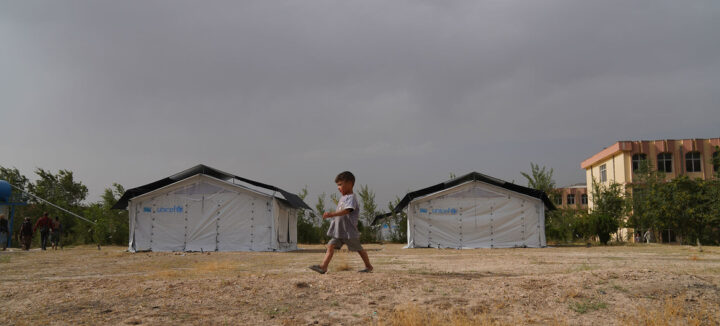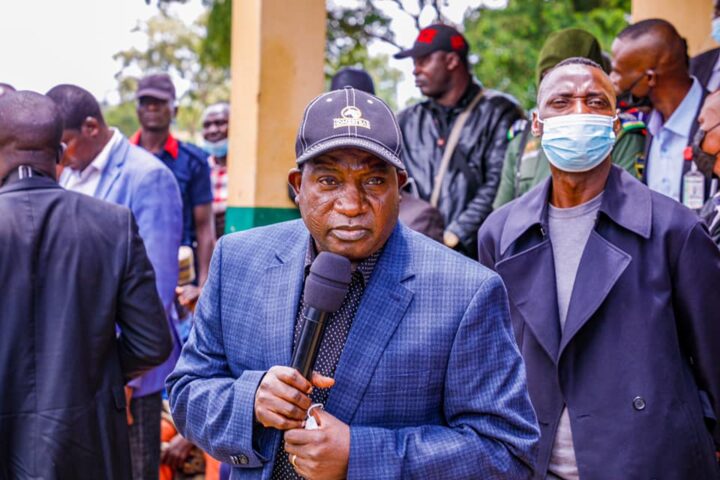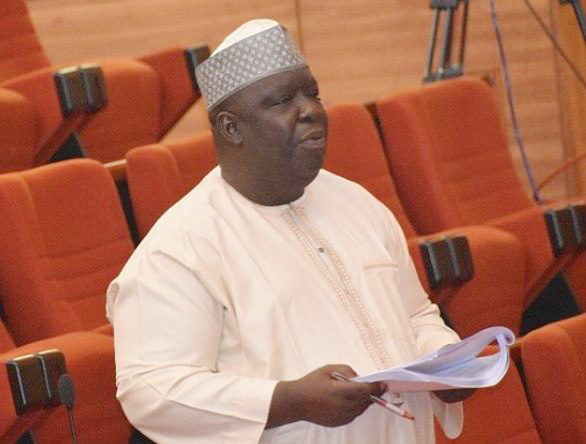A child walks through a temporary camp set up in Kabul after his family was displaced UNICEF due to insecurity across Afghanistan.
The United Nations International Children’s Emergency Fund (UNICEF) says children in Afghanistan will pay the heaviest price in the coming weeks if the right measures aren’t taken to ensure their protection.
George Laryea-Adjei, regional director for the UNICEF, South Asia, in a statement on Sunday, said not only have some children been forced from their homes, they have also been deprived of basic healthcare that can protect them against diseases.
Afghanistan fell to the Taliban, a fundamentalist Islamic group, after the insurgent group seized several of its provinces and sealed its victory with the takeover of Kabul, the country’s capital on August 15.
Also, a United Nations report says 5,770 Afghanistan children were killed or maimed between January 2019 and December 2020.
Advertisement
Following the takeover of the Taliban earlier in August — after US troops withdrew from the south Asian country — there have been concerns over the welfare of citizens, especially children.
Speaking on the current state of affairs in Afghanistan, Laryea-Adjei expressed concern over the safety of children, adding that more resources need to be deployed to support them.
“In the past weeks, with increased conflict and insecurity, it is children, those least responsible for the crisis in Afghanistan, who have paid the heaviest price. Not only have some been forced from their homes and cut off from their schools and their friends, but they are also deprived of the basic healthcare that can save them from diseases such as polio and tetanus,” he said.
Advertisement
“Now, with a security crisis, skyrocketing food prices, a severe drought, the spread of COVID-19, and another harsh winter just around the corner, children are at greater risk than ever.
“If the current trend continues, UNICEF predicts that one million children under 5 in Afghanistan will suffer from severe acute malnutrition – a life-threatening condition. Meanwhile, over 4 million children, including 2.2 million girls, are out of school. Around 300,000 children have been forced out of their homes, some in their pyjamas as they slept, some while they sat quietly reading schoolbooks. Too many of them have witnessed scenes that no child should ever see. Children and adolescents are struggling with anxieties and fears, in desperate need of mental health support.
“We know some partners are considering cutting aid to Afghanistan. This is very concerning and poses some major questions.
Will we have enough resources to keep health centres running and ensure pregnant women can give birth without risking their lives? Will we have enough resources to keep schools open and ensure both girls and boys are able to spend their young years learning in safe, nurturing spaces? Will we have enough resources to save the lives of hundreds of thousands of severely malnourished children?
Advertisement
“UNICEF has been in Afghanistan for 65 years and has field presence across the country. We are engaging all interlocutors so that we can scale up our response across all regions. We are already supporting mobile health and nutrition teams in camps for Internally Displaced Persons, setting up child friendly spaces, nutrition hubs, and vaccination sites, prepositioning additional lifesaving supplies, and supporting thousands of students in community-based education classes.
“But more resources are direly needed. Young people and children have been telling us they are in desperate need of the most basic items and services – needs which, given support, the humanitarian community can easily respond to. UNICEF recently launched an appeal for USD 192 million and we urge donors to step up their support to the vulnerable families and children who are struggling amidst an escalating humanitarian crisis.
“The needs of the children of Afghanistan have never been greater. We cannot abandon them now.”
Advertisement
Add a comment







